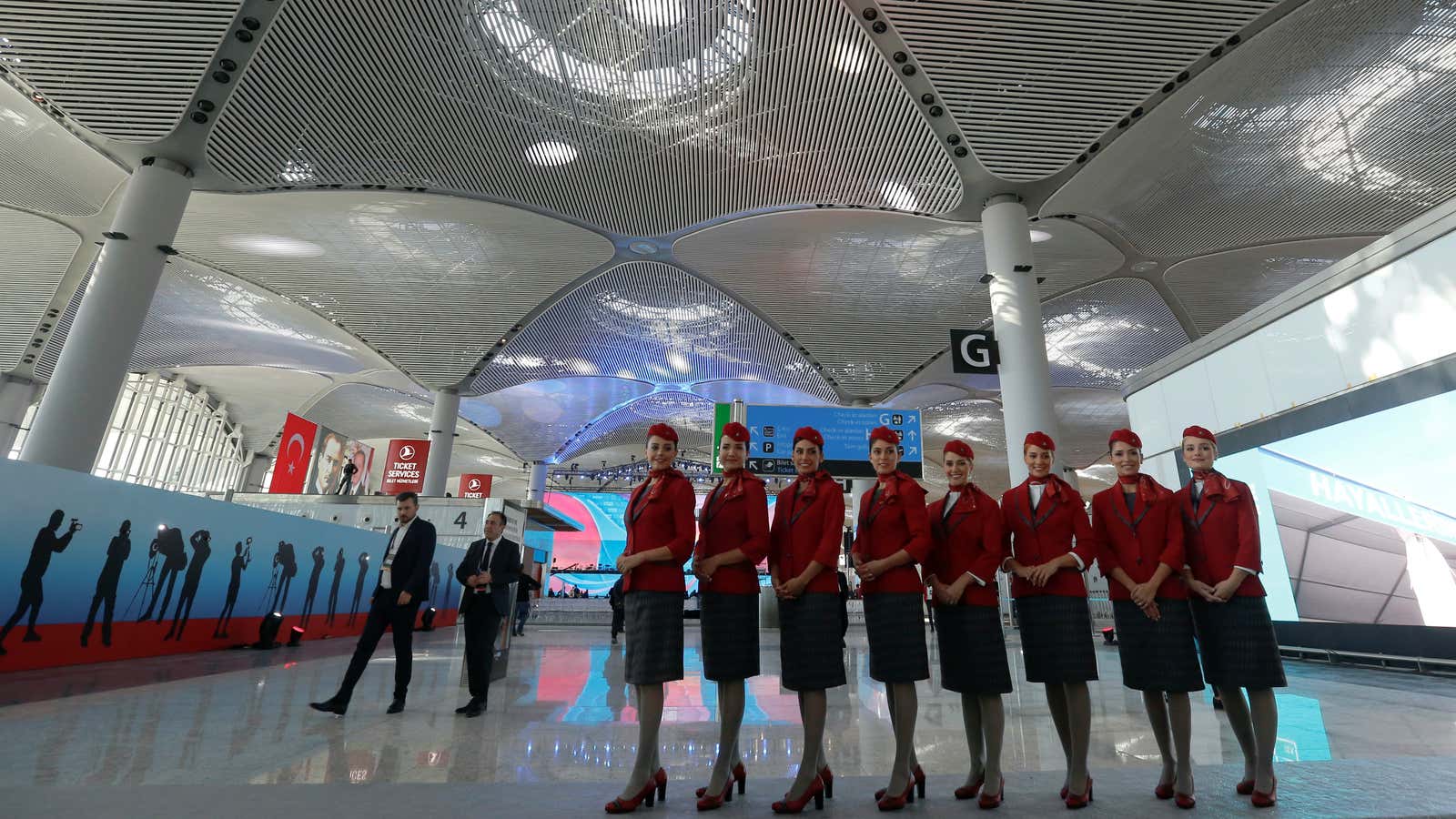Istanbul’s new airport, which opens today, doesn’t even have a name yet, and it only has a handful of flights scheduled. But it has a lofty goal: to be the world’s largest by passenger volume.
Operating under the working title of Istanbul New Airport, the soft opening has just a skeletal schedule of regional Turkish Airlines flights that began flying out of the airport today. By the end of the year, officials hope all flights and airplanes operating out of the city’s existing Istanbul Atatürk Airport (IST) will move to Istanbul New Airport (ISL). When fully completed, ISL will have 114 gates and an annual passenger capacity of 90 million.
Emily McNutt of the travel website The Points Guy previewed a portion of the airport last week, and reports that within two years ISL hopes to be a member of the “100 club” of airports that have an annual passenger traffic of 100 million. Currently, as TPG noted, Atlanta’s Hartsfield-Jackson International Airport is the only member of the 100 club, as well as the longtime holder of the world’s largest airport title, transiting 104 million in 2017. Beijing and Dubai are closely approaching club membership.
By 2028, the builder and operator of the Istanbul airport to TBG that it aims to have the capacity to handle 200 million passengers, which would make it the largest airport in the world by a long shot.
Located within three hours of three continents, ISL is well-placed to do it. Istanbul’s new airport can easily service 60 capitals and 120 countries, and is built in the style of international east-west mega-hubs such as Doha (DOH) and Dubai (DXB). With its impressive scale and focus on connectivity, it’s well-placed to become an airport that international travelers want to connect through—the kind that’s dismally lacking in the United States.
ISL still has a ways to go to reach its goal—large construction projects are commonly plagued by delays, even after “soft openings”— and the airport has been beset by concerns about labor conditions for those building it. It has also yet to secure a US carrier to fly directly into it, as Delta canceled its direct flights into the city following terrorist attacks in 2016.
